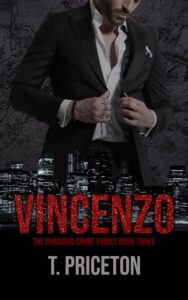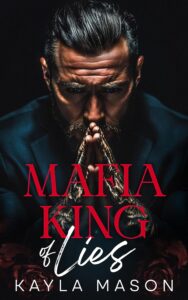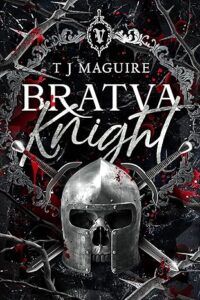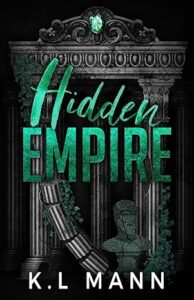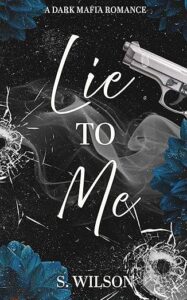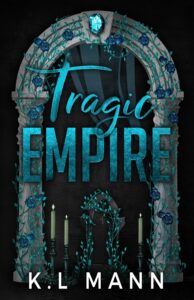The restaurant is buzzing with activity this evening despite the late hour, the low murmur of voices blending with the clinking of plates and glasses. The air smells of garlic and roasting meat, thick with the warmth of rich sauces and fresh-baked bread. Our table is tucked in the corner, shadowed by a large marble column, offering just enough privacy for a conversation that’s anything but casual.
My father sits across from me, the man who’s made it all possible—who’s shaped everything I’ve become. His presence looms over everything, even when he’s silent. To even breathe his name is to understand fear to most people in Rome. To his right is the fence, a man with a thin face and jittery hands, constantly scanning the room like a rat in a trap.
‘The deal is good, Mr. Costa.’ His hands shake as he tucks the rolled canvas into the long plastic tube and wrestles the cap onto it. The canvas strap to hang it from his shoulder is unassuming for such an expensive work, but had it been one of the Raphaels, I’d have insisted on something more fitting. This man knows what he’s doing, though.
‘Very well, then,’ my father says. His fingers curl around the glass in front of him and he drinks deeply of the dark red wine we’ve been enjoying. Our meal is mostly finished, only a few things left to wrap up. Like payment.
‘You know Interpol has been watching for that painting.’ Even the fence won’t mention the Raphael we have tucked away in the back room of this restaurant. He calls it ‘that painting’ like it’s diseased or carrying some sort of curse, but it’s a family heirloom that if real, will restore some note of hierarchy to the Costa name stolen from us years ago.
”That painting’ is worth more than your breath, Antony, so shut your yap.’ I narrow my eyes at him and his presumption that he is permitted to speak casually. It gives him a start, and he clings to the stolen Pollock like it’s a life preserver.
My father’s fingertips lift from the table in a gesture meant to calm me, and I relax back into the booth behind the marble pillar and allow him to speak.
‘I’m sure you have your ears to the ground, Antony. Tell us, what exactly is Interpol looking for?’ His fingers steeple and he leans over the table. The fence glances at me nervously, preferring to speak to my father instead of me, which is comical to me. Emilio Costa is the most dangerous criminal in Rome. I’m just his protégé, his son.
‘Every import and export,’ he mutters, flicking glances at me every few seconds, ‘they’re hunting for the missing Raphael to send to the museum. And they’re not messing around. It’s the most famous one out there. If they knew you had it…’
His finger’s rise again, this time at the fence whose Adam’s apple bobs up and down hard. ‘Thank you for meeting with us,’ my father tells him, then rubs his thumb and fingers together in a circular motion.
The fence reaches into his coat’s inside pocket and extracts a large white envelope, thick and full of cash, which he slaps on the table as he stands. ‘Just fair warning. You don’t want them coming down on you. I can’t move this until the smoke clears, so the payout is lower.’
The trap is already set, however. Rocco’s work is done. It was done three nights ago when the Pollock was lifted and replaced with a forgery, and the fingerprints of Isabella De Luca are all over the case, the glass, and the fake frame itself. When this real Pollock surfaces, I’ll decide whether we intend to continue with the frame job or not. So far, she’s agreed to help.
‘Nice doing business with you. Now get out of here,’ I grunt, and the man scurries away like a cat is after him. I turn to my father, who thumbs through the envelope as if counting the cash, and I ask, ‘Do you still want to see the painting?’
I’ve been in possession of the lost Raphael for a few days now, keeping it locked away out of sight here at the restaurant run by my family. He’s been asking to see it and its beautiful gilded frame since the moment we intercepted its movement across the Mediterranean last month. When it was stolen from our family centuries ago, it vanished, then resurfaced a few times over the years. Now that it’s in our possession, I intend to prove it is the real thing, and to do that, I need Isabella.
My father stands, tucking the envelope of cash in his inner breast pocket of his jacket, and nods at me. We leave the booth to be cleaned by the wait staff and I lead him across the dining room and into the kitchen.
There are people everywhere bustling about, carrying trays of drinks, plates of food, and dirty dishes to be scraped and washed. The chef shouts a few orders and people scatter to heed them, and we pass through the main part of the kitchen into the back, past the refrigeration area and into the storage area. One very unassuming door is my target, guarded by my dear friend Rocco, who helped with the heist of the Pollock only a few days ago.
I nod at him, and he steps aside, opening the door for us. Father follows as I step into the room and flick on the light that hangs above the painting. It’s set on an easel with a large, dark green tablecloth draped over it to protect canvas and frame from collecting dust.
‘Well, let’s see it, Victor. I don’t have all day.’ He adjusts his tie and folds his hands in front of himself waiting for me to remove the cloth, and I do, carefully peeling it back so as not to upset the painting or knock it over. In its frame, it weighs close to seventy-five pounds, the gold dusted onto the old, sturdy wood and thick canvas used by Raphael centuries ago, very heavy for its time.
‘Magnificent,’ he breathes, and in the next breath he reaches into his pocket and pulls out a small folding knife and opens it. ‘The lost Raphael.’
‘Yes, The Last Supper of St. Francis,’ I tell him, admiring the attention to detail Raphael put into the painting. Mirroring The Last Supper of Christ, the scene is set with a table and goblets of wine, men strewn about wearing robes, balding. It’s spectacular, the colors, each brush stroke. There is no doubt in my mind it’s the one we’re looking for, but Isabella’s expert opinion will seal the deal for us.
‘It’s time we prove it once and for all,’ my father says, moving toward the canvas with his knife out. I’m never one to correct my father or stand in his way, but I leap between him and the painting with arms outstretched in absolute shock over what he’s doing.
‘What the hell do you think you’re doing? That painting is worth millions!’ I’m inches away from being smacked. I can see the annoyance on his face as he straightens and backs away.
‘It isn’t the painting that’s worth anything, Son.’ He looks past me, eyes narrowing on the face of St. Francis, who peers back from the art in sheer judgment. What man in his right mind would slice open a genuine Raphael for any reason?
‘So you’ll slice through hundred-year-old art?’ I scoff and chuckle, then realize he’s serious.
He pushes me aside, then leans closer to the painting, but I see it’s not the art he’s eyeing. It’s the frame. His eyes narrow, and he presses the tip of the knife to the corner of the wood, focusing carefully as he pries a single splinter from the frame so tiny no one would notice it. Then he puts it on his tongue and tastes it before folding the knife shut.
‘This expert of yours, she can tell if it is the original frame?’ He runs a hand over the curves of the ornately carved wood. I doubt Raphael did the carving, probably some general framer of the day who made this. But he seems very interested in it—too interested.
‘I doubt it has any value at all, but I’m sure she can tell me if it’s at least from the period.’ I shake my head and step aside as he continues to completely ignore the incredible work of art housed within the frame and studies the frame itself. His fingers trace the lines, thumbs prying at every crack and crevice. He even walks around behind it and peels back the paper used to protect the back side of the painting, shredding it and tossing it to the floor.
‘My God, what is so fascinating about the frame? You’re looking at a real Raphael here, Papà.’ I run a hand through my hair and then put a finger in my mouth and bite the knuckle. He’s going to destroy it before Isabella even gets to look at it. It will be worthless.
‘You’ll understand in due time, Son. Now…’ Finally, he stops torturing me and turns to meet my gaze. ‘This art lady of yours will take good care of my painting?’ He spits the splinter of wood out and shoves his hands into his pockets, and I sigh with relief. The sooner I get this away from him and into Isabella’s hands, the better.
‘Hopefully, she will do more than that. If it’s real and it’s the one that’s been lost, the authentication will prove it belongs to us.’ In my mind, that means a tie to our legacy, my great-great-grandfather will rest easier in his grave, and my family will take possession of the only Raphael the world has never seen. That alone will mean something, but the legacy behind it will catapult our name to the forefront of every artistic authority in the world.
‘And the fortune will be ours as well…’ My father’s eyes gleam with pride and greed, something I’m used to seeing.
Now, we just have to have it authenticated, and we’ll show the world the Costas are in the game.




